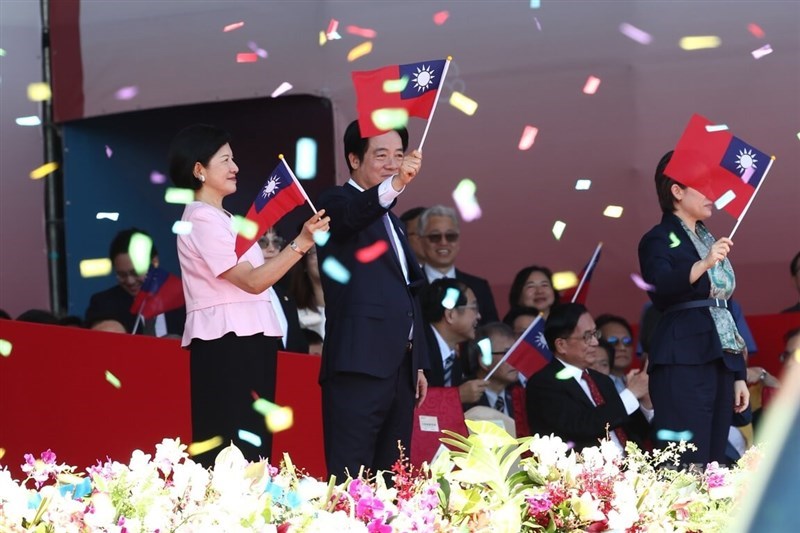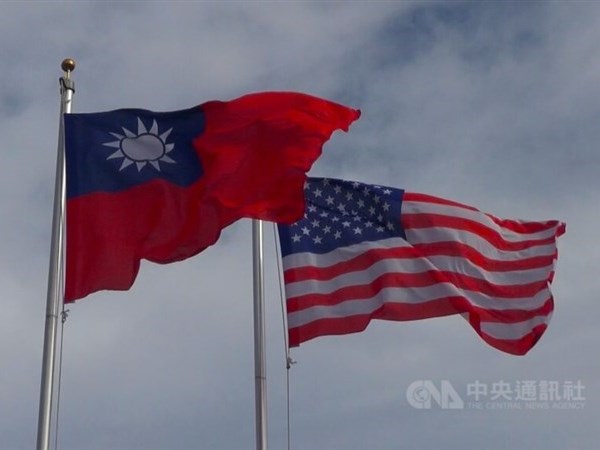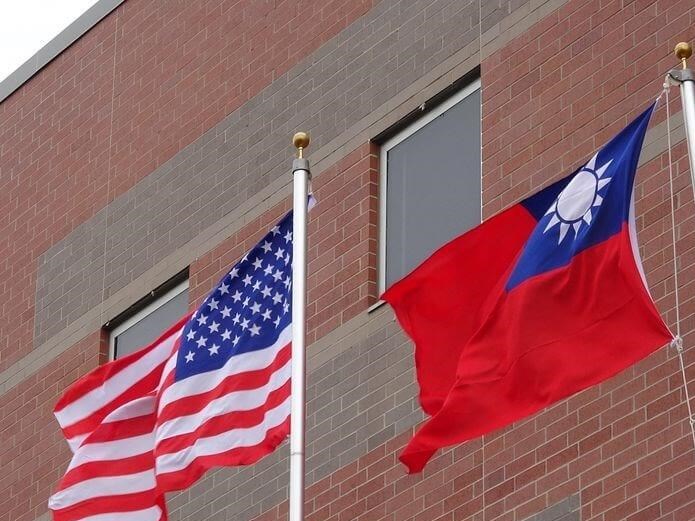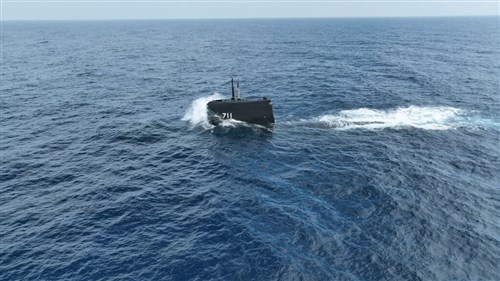DEFENSE / Lai pledges to build 'T-Dome' air defense system in national address (update)

Taipei, Oct. 10 (CNA) President Lai Ching-te (賴清德) pledged Friday to strengthen Taiwan's air defense capabilities and build a "T-Dome" system to create a safety net for the nation amid growing military threats from China.
"We will accelerate our building of the T-Dome, establish a rigorous air defense system in Taiwan with multi-layered defense, high-level detection, and effective interception, and weave a safety net for Taiwan to protect the lives and property of citizens," he said in his National Day address.
In his keynote address marking the 114th anniversary of the founding of the Republic of China (Taiwan), the president said the lessons of World War II have taught nations worldwide "to ensure that the tragedies of history are never repeated."
"The outcomes of that conflict tell us that aggression fails, unity prevails, and that peace is won through strength," he said.
Lai reiterated his administration's pledge to increase Taiwan's defense spending to 3 percent of GDP next year and 5 percent by 2030, saying that the T-Dome system is among its key objectives.
He added that Taiwan will integrate "high-tech and AI technologies" to develop a "smart defense combat system," invest in innovative defense research, and collaborate with the defense industries of advanced nations to boost domestic capabilities.
Lai did not elaborate on the details of the "T-Dome" system.
According to a Reuters report published late Thursday ahead of Lai's address, the T-Dome -- or Taiwan Dome -- aims to counter increasingly complex threats, including drones, rockets, missiles and military aircraft.
Citing multiple unnamed sources, Reuters said the system is modeled after Israel's "Iron Dome" missile defense network. Plans for the system are currently being drafted, with "initial integration" expected to begin soon, one source said.
In his second National Day address since taking office in May 2024, Lai said that building a more resilient Taiwan requires closer cooperation between the public and private sectors, both in responding to natural disasters and in preparing for a potential Chinese invasion.
"We are determined to maintain peace through strength. We firmly believe that strength is not obtained through military strength alone, but must also rely on resilience throughout society," Lai said.
In June 2024, Lai's administration established the Whole-of-Society Defense Resilience Committee under the Presidential Office.
Over the past year, the committee has helped strengthen coordination between the government and the private sector, as well as between central and local authorities, to enhance "integrated disaster prevention and defense," Lai said.
Lai on Cross-Strait Relations
On cross-Strait relations, Lai said his administration looks forward to the day when China "can take responsibility as a major power and cease its distortion of United Nations General Assembly Resolution 2758 and historical World War II documents."
"We also hope it will renounce the use of force or coercion to change the status quo across the Taiwan Strait so that we can jointly maintain the peace and stability of the Indo-Pacific."
Resolution 2758, adopted by the 26th U.N. General Assembly in 1971, addressed the issue of China's representation at the international body.
It resulted in Taiwan, officially the Republic of China (ROC), losing its seat at the U.N. to the People's Republic of China (PRC). Taipei has since been excluded from participating in the organization and its affiliated agencies.
Chinese officials have repeatedly claimed that the 1943 Cairo Declaration and 1945 Potsdam Declaration prove that mainland China has jurisdiction over Taiwan.
However, both documents only set the conditions for Japan's surrender, including relinquishing control of Taiwan and restoring it to the ROC.
The PRC was established on Oct. 1, 1949, two months before the ROC government relocated to Taiwan.
Taiwan's government maintains that the 1951 San Francisco Peace Treaty -- which is binding under international law -- supersedes the political statements made in the Cairo and Potsdam declarations.
The treaty did not assign Taiwan to the PRC, and the PRC has never governed Taiwan, according to the government.
-
![New U.S. arms sales strategy favors Taiwan, but ambiguity remains: Experts]() New U.S. arms sales strategy favors Taiwan, but ambiguity remains: ExpertsThe United States' new "America First Arms Transfer Strategy" could benefit Taiwan, though much will depend on how it is implemented and whether Taipei approves sufficient funding, U.S. defense experts said Wednesday.02/12/2026 12:31 PM
New U.S. arms sales strategy favors Taiwan, but ambiguity remains: ExpertsThe United States' new "America First Arms Transfer Strategy" could benefit Taiwan, though much will depend on how it is implemented and whether Taipei approves sufficient funding, U.S. defense experts said Wednesday.02/12/2026 12:31 PM -
![Washington's new arms sales strategy good for Taiwan: U.S. expert]() Washington's new arms sales strategy good for Taiwan: U.S. expertA U.S. defense expert has said that Washington's "America First Arms Transfer Strategy" is good for Taiwan but warned that continued delays in passing defense budgets could put Taiwan's status as a priority partner at risk.02/08/2026 04:09 PM
Washington's new arms sales strategy good for Taiwan: U.S. expertA U.S. defense expert has said that Washington's "America First Arms Transfer Strategy" is good for Taiwan but warned that continued delays in passing defense budgets could put Taiwan's status as a priority partner at risk.02/08/2026 04:09 PM -
![Underwater footage of Taiwan's submarine prototype released for first time]() Underwater footage of Taiwan's submarine prototype released for first timeTaiwan's indigenous defense submarine (IDS) prototype Hai Kun on Sunday released its first official video documenting its submerged sea trials, showing underwater navigation and the launch of countermeasures.02/08/2026 02:20 PM
Underwater footage of Taiwan's submarine prototype released for first timeTaiwan's indigenous defense submarine (IDS) prototype Hai Kun on Sunday released its first official video documenting its submerged sea trials, showing underwater navigation and the launch of countermeasures.02/08/2026 02:20 PM
-
Society
4 pygmy killer whales die after mass stranding in Pingtung
02/24/2026 07:21 PM -
Society
3-month-old boy youngest severe flu case this season: Taiwan CDC
02/24/2026 06:18 PM -
Society
One worker critical in Minquan Bridge construction accident
02/24/2026 06:03 PM -
Cross-Strait
Lai reiterates 'status quo' at China-based Taiwanese event
02/24/2026 05:37 PM -
Society
Total lunar eclipse greets Lantern Festival on March 3: CWA
02/24/2026 05:13 PM


